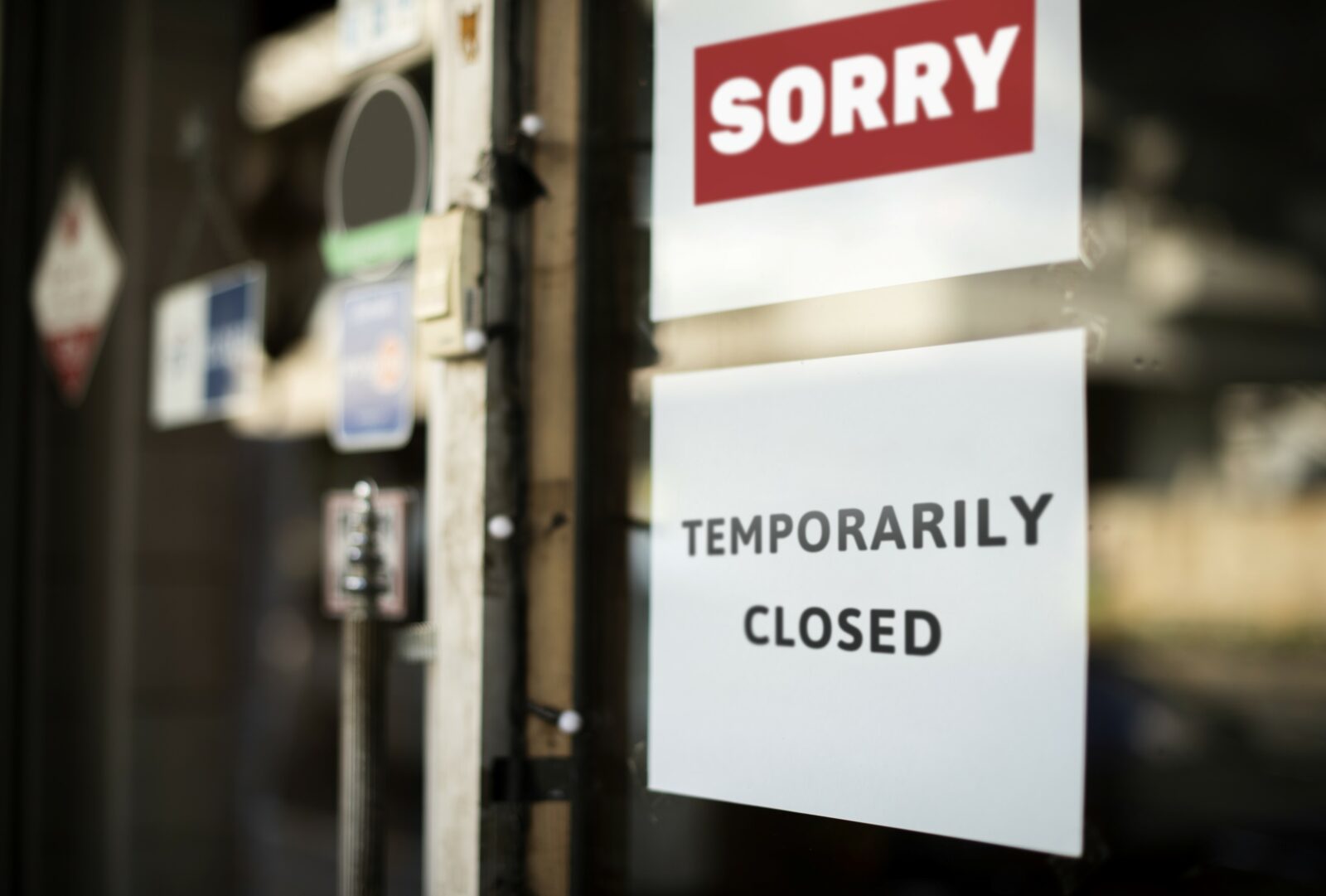Oregon Federal Court Joins Growing List of Courts to Decide Whether Lost Business Income From COVID-19 Closures Are Covered Under Insurance Policies.
Listen to Our Legal Alerts on the Following Platforms:
From the Desk of Jeff Eberhard:
When COVID-19 hit, governors took steps to keep the public safe. The Shelter in Place order enacted in Washington State and many other states forced businesses to shut their doors to help slow the spread of the virus. However, the battle has not just been against the virus, it has been in the courtroom. Courts are seeing lawsuits brought by businesses against their insurance companies for lost business income due to these closures. Whether a policy provides coverage for a loss depends on the language of the policy. In Dakota Ventures, the United States District Court for Oregon interpreted an insurance policy to determine if an insurance policy’s “Covered Cause of Loss” included lost business income for businesses closed in compliance with COVID-19 Shelter in Place orders.
Claims Pointer:
This case arose from a business’s claim for lost business income under a Businessowner’s Protection Policy for direct physical loss or damage to covered property resulting from the closure of the business during COVID-19. Here, the Oregon District Court considered several policy provisions and whether damages to the business’s property must be physical for coverage to apply under the policy’s provisions. The court found that there was no direct loss or damage to property so there was no coverage under the policy.
Dakota Ventures, LLC v. Or. Mut. Ins. Co., 2021 LEXIS No. 3:20-cv-00630-HZ, U.S. Dist. LEXIS (D.OR. Aug. 11, 2021).
Facts:
In this case, Dakota Ventures, LLC (Plaintiff) owned and operated two restaurants in Port Angeles, Washington. Plaintiff purchased a Businessowner’s Protector Policy from Oregon Mutual Insurance Company (Insurer) for business liability and basic property coverage. In March 2020, under Washington Governor Inslee’s executive order prohibiting indoor dining, Plaintiff stopped indoor dining and slowed business at both Plaintiff’s restaurants. Plaintiff submitted a claim to Insurer to recover Plaintiff’s lost business income caused by Governor Inslee’s orders. Insurer concluded that no covered cause of loss occurred to trigger coverage under the policy. Therefore, Insurer denied Plaintiff’s claim.
Plaintiff brought this case against Insurer for breach of contract for denying coverage under the policy. Specifically, Plaintiff argued that Plaintiff “directly lost the functionality of its property for business purposes due to COVID-19,” and “the presence of COVID-19 on property damages property. It makes it unsafe. It makes it cause sickness.”
The policy at issue provided coverage for Plaintiff’s financial losses under the following policy provisions: Business Income, Extra Expenses, Civil Authority, Ingress and Egress, and Sue and Labor. Plaintiff argued that the policy’s undefined terms “loss of,” “damage to,” and “direct physical loss” covered the loss of the functionality and impairment of use of its two restaurants for dine-in services because of Governor Inslee’s executive orders in response to COVID-19. Insurer argued that the policy required a direct physical loss of property or property damage for coverage to apply under any of the policy provisions. Insurer also argued that, since there was no direct physical loss or damage to property as required by the policy, there was no coverage for Plaintiff’s claims.
Law:
Determining whether insurance coverage exists under an insurance policy is a two-step process. First, the insured must show that the loss falls within the policy’s grant of coverage. Second, the insurer must establish whether an exclusion applies. To determine if the policy grants coverage, the court must interpret the insurance policy’s language. To interpret an insurance policy, the court must ascertain the parties’ intentions to the insurance policy. If the insurance policy defines the phrase in question, the court applies that definition. If there is no definition in the policy, the court next determines the plain meaning of the phrase. If there is a plain meaning, the court’s analysis stops. If the phrase at issue has more than one plausible interpretation, the court examines the phrase in the context of the policy as a whole. If the phrase is still ambiguous, the court resolves the ambiguity against the insurance company.
Analysis:
The Oregon District Court applied Oregon law for its insurance policy interpretation analysis. To determine if the policy in question granted coverage, the court interpreted what a “Covered Cause of Loss” meant under the policy. The policy defined Covered Cause of Loss as “[r]isks of direct physical loss” unless otherwise limited or excluded under the other provisions of the property coverage. The court applied the plain meaning of “direct,” “physical,” and “loss” as found in the dictionary. By applying the plain meaning of direct physical loss, the court determined that a Covered Cause of Loss must directly cause property to be lost or physically damaged for coverage to exist under the policy’s Business Income and Civil Authority provisions. The court held that the Business Income and Extra Expense provision of the policy required Plaintiff to lose possession of its property or demonstrate a physical alteration in the condition of its property for the coverage to apply. Purely economic damages that do not result from any “direct physical loss or damage to property” are not sufficient to prove that coverage applied.
Additionally, the court held that the plain meaning of the policy language and case law interpreting identical provisions in insurance policies made clear that “‘direct physical loss of or damage to property’ did not include a ‘loss of functionality’ of undamaged property for its intended purpose.” The policy covered loss and physical damages, meaning the insured must demonstrate a loss of functionality, value, or use that is physical or tangible in nature. For the Ingress and Egress provision of the policy to apply, the policy required a “direct loss or damage to property” at a location near Plaintiff’s restaurants. Similarly, the policy required an act of civil authority to physically prohibit access to the Plaintiff’s premises to trigger the Civil Authority provision of the policy.
Since there was no physical damage to the property, the Business Protection Policy did not cover the Plaintiff’s losses.
The Big Picture:
The court’s holding relied on the policy language, settled insurance doctrine, and holdings from federal district courts across the country on similar claims. Insurance policies that provide coverage for property loss do not include coverage for loss of business income due to state closure orders to curb the spread of COVID-19. For coverage to apply, there must be a risk of direct physical loss to business property. An inability to use property in a manner the insured intended is not a covered cause of loss under the policy. Without a direct physical alteration of the property’s condition or dispossession of the property, the policy’s coverage will not apply.

















